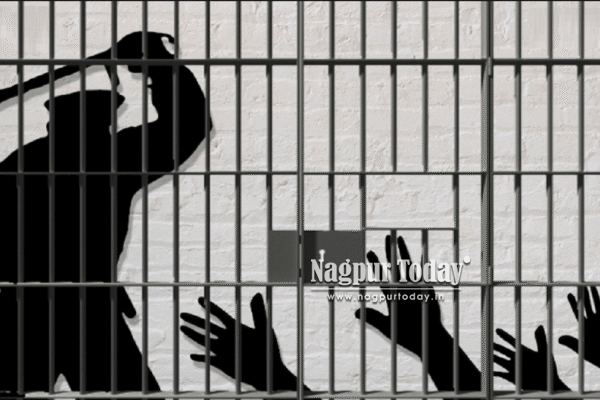Nagpur: On a stormy night in June 1993, Zarina Yelamati’s life was shattered in the most brutal way imaginable. The young mother, just 22 at the time, was asleep in her railway quarters in Nagpur when police officers barged in, searching for a man named Anthony. They didn’t find him. Instead, they took her husband, Joinus Adam Yelamati, a diesel mechanic with the railways, and tortured him through the night. By morning, he was dead, according to a news portal “newslaundry” which dealt with the subject in detail.
More than 30 years later, Maharashtra continues to top the charts in custodial deaths, and yet, the state hasn’t seen a single murder conviction in such cases in over four decades. Joinus Yelamati’s case stands out not just because it led to a rare conviction, but because of the sheer persistence of one woman from Nagpur, who spent 25 years fighting the system to bring her husband’s killers to justice. And even that justice was partial.
A wall of silence in custody deaths
Despite being India’s most industrialised state, Maharashtra continues to carry a shameful legacy. According to the Status of Policing in India Report 2025, the state has consistently registered the highest number of custodial deaths and rapes reported to the National Human Rights Commission (NHRC), averaging 21 cases annually between 1994 and 2022.
Between 1999 and 2017 alone, 404 custodial deaths were recorded in Maharashtra. Yet, only 53 FIRs were filed, 38 chargesheets prepared, and not a single conviction for murder.
In the same period, families like Zarina’s were left to fight a battle that the state machinery appeared determined to suppress.
The Nagpur case that refused to be buried
June 24, 1993: “My husband had just returned from duty. We were asleep with our two children when police broke open our door and began thrashing him,” Zarina recalls. The officers molested her, dragged Joinus out, tied him to a pole, and beat him mercilessly. “Even our children, just 8 and 9 years old, watched in terror.”
Joinus was taken to the police crime branch office, stripped, beaten again, and mocked. “They humiliated us in every way possible. He was sick, a TB patient, but they didn’t stop.” By dawn, he was dead in the lock-up at Rani Kothi. No charges. No arrest memo. No explanation.”
From widowhood to a 25-year legal war
An FIR was filed at Sadar police station, but justice moved at a glacial pace. With no legal aid or compensation, Zarina became a railway sweeper to feed her children. Relatives collected donations from local churches to keep the family afloat.
Threats followed. Bribe offers came. “They tried to shut me up with Rs 25–30 lakh. I said I’d rather starve.”
The trial court sentenced the accused cops to just three years. Unfazed, Zarina approached the Nagpur Bench of Bombay High Court, then the Supreme Court. In September 2018, the apex court finally enhanced the punishment to seven years under Section 330 (voluntarily causing hurt to extort a confession), not murder.
It was still a rare moment. In a state where most custodial deaths vanish into silence, Nagpur became a rare site of police accountability, even if partial.
“Half my life was consumed by this. I’m still standing, because they need to know we won’t forget,” Zarina says today, working quietly as a medical attendant in Nagpur.
Systemic apathy, from Mumbai to Parbhani
Zarina’s case is a chilling outlier. For most others, justice is deferred, or denied.
• In Mumbai, Leonard Valdaris has waited 11 years for the trial in his son Agnelo’s death to begin, despite a CBI probe and a Supreme Court directive. Eight officers were charge-sheeted, yet no one has been convicted.
• In Parbhani, 80-year-old Asiya Begum is still waiting for justice in the 2003 custodial killing of her son Khwaja Yunus, a software engineer whose body was never recovered. Despite CID evidence of torture, the trial drags on, now 22 years later, after the state refused to sanction prosecution for 10 out of the 14 accused officers.
Even the state’s much-touted new policy on custodial deaths, announced in April, merely offers fixed compensation of Rs 5 lakh, with no focus on accountability, criminal prosecution, or institutional reform.
Cover-ups and complicity
As per a 1994 report by the Sardar Vallabhbhai Patel National Police Academy, custodial deaths are routinely covered up using tactics such as:
• Falsifying post-mortem reports
• Tampering with station records
• Coercing families to sign false affidavits
• Failing to register complaints or FIRs
• Bribing victims’ families to withdraw complaints
• Delaying or denying prosecutions through bureaucratic hurdles
Doctors and magistrates, too, have been complicit in many cases, forging reports or suppressing critical medical evidence, the report added. And so the impunity thrives.
Maharashtra: Still leading for all the wrong reasons
In 2021–22, the Ministry of Home Affairs confirmed that Maharashtra recorded the highest custodial deaths (29) in India. But no prosecution was initiated in any of those cases. Even disciplinary action was limited to a handful.
What these figures fail to show is the devastating impact on the survivors — women like Zarina, families like Leonard’s and Asiya’s, who are forced to navigate an apathetic criminal justice system while the accused officers often return to their posts or enjoy political protection.
One conviction, a thousand battles ahead
Nagpur’s rare conviction is not a celebration, it is a painful reminder of what it takes to break the silence.
One woman’s refusal to give up, despite systemic resistance and personal suffering, forced the state to act, reluctantly, incompletely. But her story stands in contrast to hundreds of others across Maharashtra, where no such reckoning ever arrives.
Unless deep institutional reforms are brought in, and the culture of silence, bribery, and bureaucratic shielding is dismantled, custodial deaths will continue to rise, and justice will remain, as ever, out of reach.















